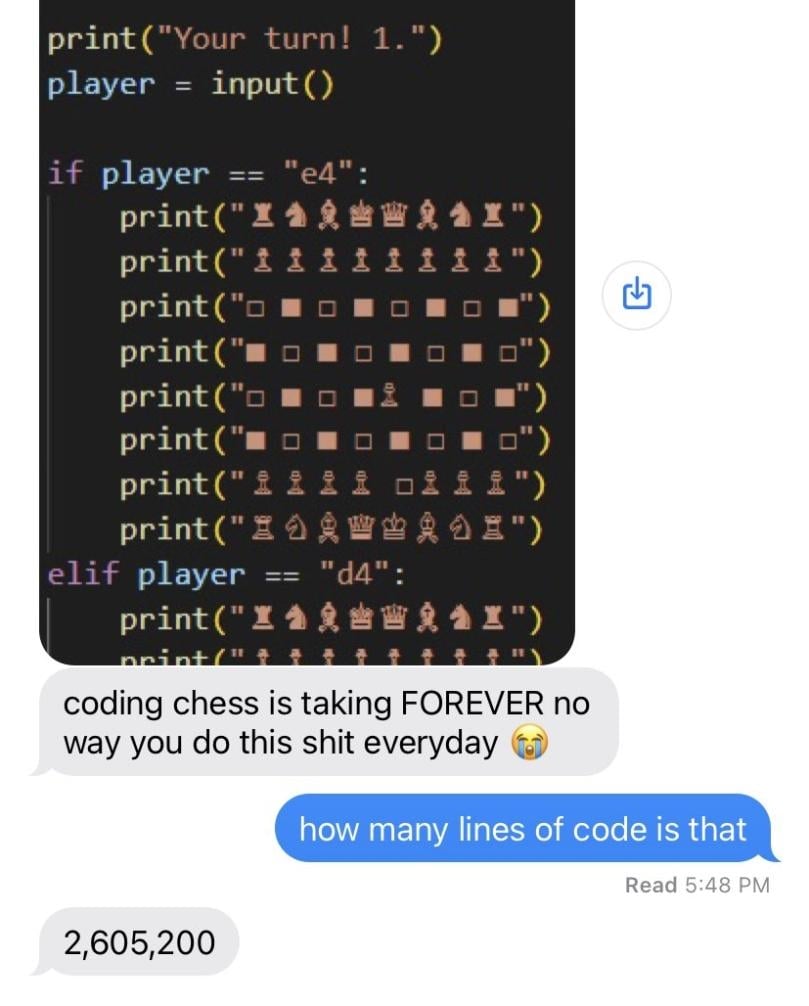this post was submitted on 22 Feb 2024
697 points (96.4% liked)
Programmer Humor
35694 readers
206 users here now
Post funny things about programming here! (Or just rant about your favourite programming language.)
Rules:
- Posts must be relevant to programming, programmers, or computer science.
- No NSFW content.
- Jokes must be in good taste. No hate speech, bigotry, etc.
founded 5 years ago
MODERATORS
you are viewing a single comment's thread
view the rest of the comments
view the rest of the comments

I want to see how you'd reply if I said it was serious. So let's go with that. This is the best way to determine if a number is even in c/c++.
The reply would have been
return x % 2 == 0, or if you wanted it to be less readablereturn !(x&1).But if you were going for a way that is subtly awful or expensive, just do a regex match on "[02468]$". You don't get a stack overflow with larger numbers but I struggle to think of a plausible bit of code that consumes more unnnecessary cycles than that...
The less readable one is faster, though I'd be surprised if the compiler doesn't generate the same code for both of those options with optimizations enabled.
I like the regex one as another unnecessarily complicated way of doing it. It also involves a string conversion.
The way that was being hinted at before my reply was a large series of if statements: is it 2? 4? 6? 8? And so on. It's plausible in that I could see a beginner programmer using that method. And honestly, knowing how people can get pigeon holed into looking at a problem from some weird angle but still having the determination to figure it out, most solutions are plausible. Often when they get pointed in a better direction, it's not so much a case of them learning something new as it is a facepalm kinda moment where they feel embarrassed at not seeing that. I've done it myself many times lol.
It's always funny seeing someone use the wrong tool for the job but still getting the job done, even when it's me.
Godbolt to the rescue! So gcc 13.2 certainly does produce the same code, though a lot of other versions and compilers do it slightly differently. Surprisingly, clang doesn't optimise this and uses
idivfor the modulo version.Awesome, thank you for that link. I should have guessed this was a thing but it hadn't even occurred to me.
And yeah, it is surprising that clang doesn't treat mod power of 2 as a special case. It looks like I can't type in code on mobile, does clang handle divide by power of 2 as a idiv or shift?